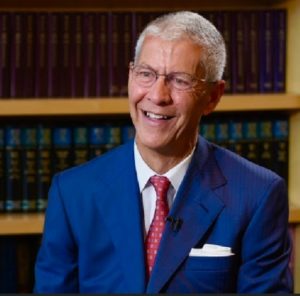In 1981, Houston passed Philadelphia in population to become America’s fourth-largest city. Thanks to petroleum, it had long since eclipsed Philadelphia in wealth. So it might surprise some to learn that World Series tickets on the secondary market are far more expensive in Philadelphia than in Houston.
Maybe that’s because baseball fans in Philadelphia are starved for a winner and this season has been a storybook surprise, while Houstonians are acclimated to winning baseball. But some of the intensity gaps also seem rooted in the venue, because Minute Maid Park is a disappointment. It’s what can happen when you build downtown on a small footprint.
It starts with the traffic to the ballpark, made worse by sharing city streets and red lights with Friday afternoon commuters. A drop-off a few blocks away saves time and then it’s a miserable exercise to avoid the puddles on uneven sidewalks. There are few ways into the park so the lines are long. Past the gates is a narrow concourse, choked with fans. It’s reminiscent of the tight concourse at the Giants ballpark in San Francisco, which is also built on a small lot.
The interior of the oddly named Minute Maid Park looks more like Disneyland than a temple to baseball. There’s an enormous locomotive atop the left field wall; an ode to a long-gone train station nearby. Above the train is a huge glass curtain, maybe the only one in any baseball stadium in America. It reminds you that there’s a hodge podge of boring mid-rises across the street. Maybe that view is better than a concrete wall, but not by much.
In right, there’s a scoreboard as big as Texas. But the pitch type and speed feature was broken for the first few innings in Game 1. Even after it was fixed, the operator would take down the information too quickly. The data points provided were pre-Sabermetrics. Useless stuff like a relief pitcher’s won-loss record was provided but not WHIP. Batters statistics reside on separate sections of the scoreboard, some of which are barely legible.
In between are nearly a dozen billboards sponsored by the oil and chemical companies of Houston’s prodigious business elite, reminding Philadelphians that we are starved in so many ways. The sight lines in the ballpark are ok if you’re sitting downstairs. But the upper decks are pushed unnecessarily far back from the field and there are few left-field seats. If the field had been moved 10 yards to the south, there could be real outfield bleachers and the infield decks could be closer to home plate.
The place is big but oddly claustrophobic. Maybe that’s because the roof was on. The bullpens are shrouded, which is spooky. The aisles are uncomfortably narrow, made worse by a handrail that bisects the traffic into a single file. The ceiling color is so close to Rawlings rawhide that the fielders struggle to track the ball.
Everybody is polite, maybe too polite. It’s almost as if because they’re inside, people are a little better behaved. There’s energy, though nothing like CBP. There was lots of noise for Kyle Turner’s home runs, but when the home team needed spontaneous boosting during their last six scoreless innings, the place felt way too quiet. When the Phillies fell behind 5-0, we left our seats and went for a walk around the edifice. The first thing you see is a daunting line for the restrooms. Perhaps the stadium architect assumed Texans don’t drink beer, but more likely ample bathroom space was another victim of a too small building footprint.
I figured if we weren’t going to win at least we could get some good Tex-Mex. After all, at CBP you can get a great cheesesteak. I’m sorry to report that the best option was the ‘shroom burger at the near-empty Shake Shack beyond centerfield. In that location, the ball field is completely out of sight, which felt ok with the game seemingly out of reach. But as the crowd’s silence was prolonged, TV screens showed the Phillies clawing back. We quickly finished our loop around the building, reclaimed our seats, and witnessed the Miracle in the Maid.
The outcome made me forget about the ballpark.
_________________________________________________________________________________________________________

Shanin Specter is a baseball fan and a founding partner of Kline & Specter in Philadelphia.
[email protected]






